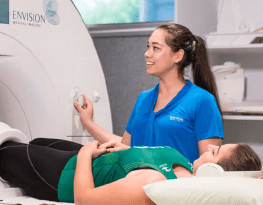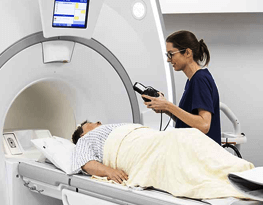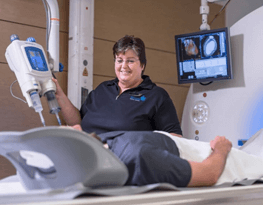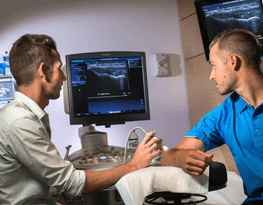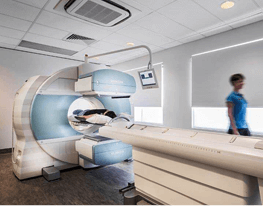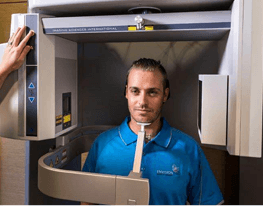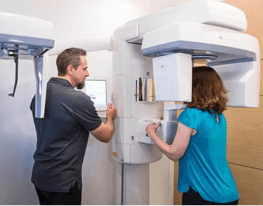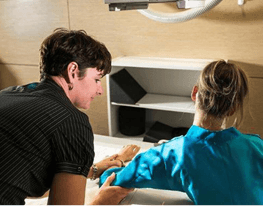CT Coronary Angiograms Perth (CTCA)
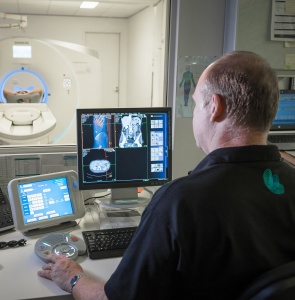
Envision is Perth’s preferred provider of specialised CT scans.
CT Coronary Angiography scans (CTCA) is a specialised form of Computed Tomography scanning (or CT scanning) used to take images of the coronary arteries of the heart (angiograms). These arteries supply blood to the heart muscle and disease of these vessels (atherosclerosis) is responsible for most heart attacks.
CTCAs are a type of cardiac CT scan.
Envisions’s Computed Tomography (CT) Equipment
Envision is the only private practice with the new state-of-the-art Siemens CT Somatom Force. This machine completes a study in less than a second, at a lower dose, providing better image quality. Our expertise lies in our high-quality interpretation by specialist radiologists.
CT Coronary Angiogram
What happens during a CT Coronary Angiogram?
A. Before your Scan
A referral from your doctor or medical specialist, and an appointment is required for this examination.
Please advise Envision Medical Imaging if you are a diabetic or if you have had a previous contrast reaction, in case special arrangements are required.
If necessary your referring doctor or one of the Radiology doctors may provide you with a prescription for Metoprolol to take before the Cardiac CT procedure to lower your heart rate for the scan.
What to bring
- Your request form
- Any relevant previous imaging
- Your Medicare card and any concession cards
Preparation – On the day of the scan
- Please inform the staff if you are taking any diabetic medication, have kidney disease or have had a previous reaction to x-ray contrast.
- Drink 1-2 litres of water over two hours before arriving.
- Please allow one hour for the duration of the procedure.
B. During your scan
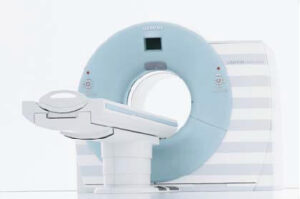 When you arrive at Envision Medical Imaging you may be asked to change into an examination gown and to remove any jewellery or watches,etc before the examination, as these can interfere with the CT Coronary Angiogram. You will be asked to complete a safety questionnaire and provide consent for the procedure.
When you arrive at Envision Medical Imaging you may be asked to change into an examination gown and to remove any jewellery or watches,etc before the examination, as these can interfere with the CT Coronary Angiogram. You will be asked to complete a safety questionnaire and provide consent for the procedure.
A nurse will insert a cannula into one of your arm veins and connect you to a heart monitor using self-adhesive dots applied to your chest. Your heart rate will be monitored until it is at rate low enough for the scan to be performed. In some instances, we may need to give you a drug called a B-blocker which slows your heart rate down a little.
You will then be asked to lie flat on the CT examination table. You will need to keep very still for the duration of the scan, as the table moves through the gantry opening and the image data is acquired. You may hear a humming noise during the scan, but no moving parts will touch you. Just before the main scan, you will receive a spray of GTN under your tongue. The GTN works to dilate normal coronary arteries.
An intravenous injection of contrast medium (x-ray dye) will be required for this scan. The contrast provides valuable information by highlighting the blood vessels on the CT images. During the injection you may notice a sensation of warmth and a metallic taste or smell. These sensations will quickly subside.
The scan itself will take just a few minutes, however please allow around one hour for the complete CT Cardiac procedure.
Risks and side effects
Complications are rare during this procedure however you should be informed of the possible CT risks and side effects.
Specific risks associated with this procedure include:
- The ?-blocker used may decrease your blood pressure and for a short time you may feel dizzy or lightheaded.
- Risks associated with the X-ray contrast material include an allergic reaction and reduced kidney function. Minor allergic reactions include slight nausea and rash or itching. More severe reactions are rare but may result in shortness of breath and some facial swelling.
- You may experience a mild headache for short period from the GTN which usually goes away within 30 minutes.
- It is extremely rare for reactions to be life threatening.
If it is possible that you may be pregnant, please inform our radiology team before your examination to avoid any risks to your unborn child.
Who will perform my scan?
At Envision Medical imaging your CT Coronary Angiogram examination will be carried out by a radiographer (medical imaging technologist), who has a degree in medical imaging and is accredited by the Australian Institute of Radiography. We have a team of Radiologists (a medical doctor specialising in the interpretation of medical images) as well as Cardiologist who will prepare and send a report to your referring doctor detailing the findings of your CT Coronary Angiogram.
CT Coronary Angiogram
What happens after a CT Coronary Angiogram scan?
What happens after my scan
At the end of the procedure the cannula will be withdrawn carefully from the vein and a band aid applied. The ECG monitor will be removed. If medications to slow your heart rate have been given, you will usually be kept under observation until any possible dizziness has worn off. The dye will be flushed naturally by your body over the following 24 hours without you noticing it. You are free to eat and drink normally. We recommend you continue to drink plenty of fluids to assist your body in flushing the contrast. You will be able to return to your normal daily activities after your scan.
How do I get my results?
Your test result will be reported to your referring doctor or health care provider within 5 working days of the examination.
Please ensure that you make a follow up appointment with your referring doctor or health care provider to discuss your CT Coronary Angiogram results.
Post-Procedural Information
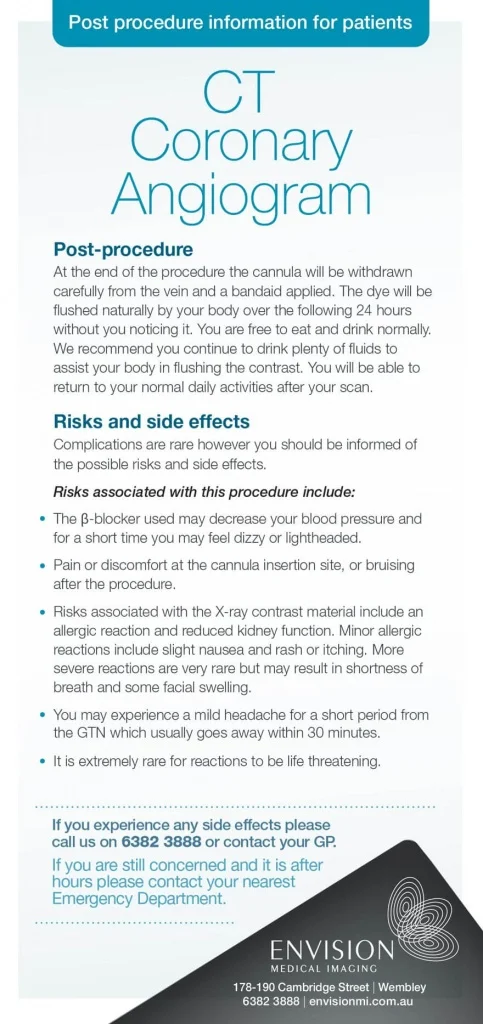
CT Coronary Angiogram
Download
Medical Imaging Practice Perth
Types of Imaging
At Envision, we offer the most sought-after types of imaging for diagnostics and treatments. Our Wembley headquarters is the largest single-site radiology practice in Perth
